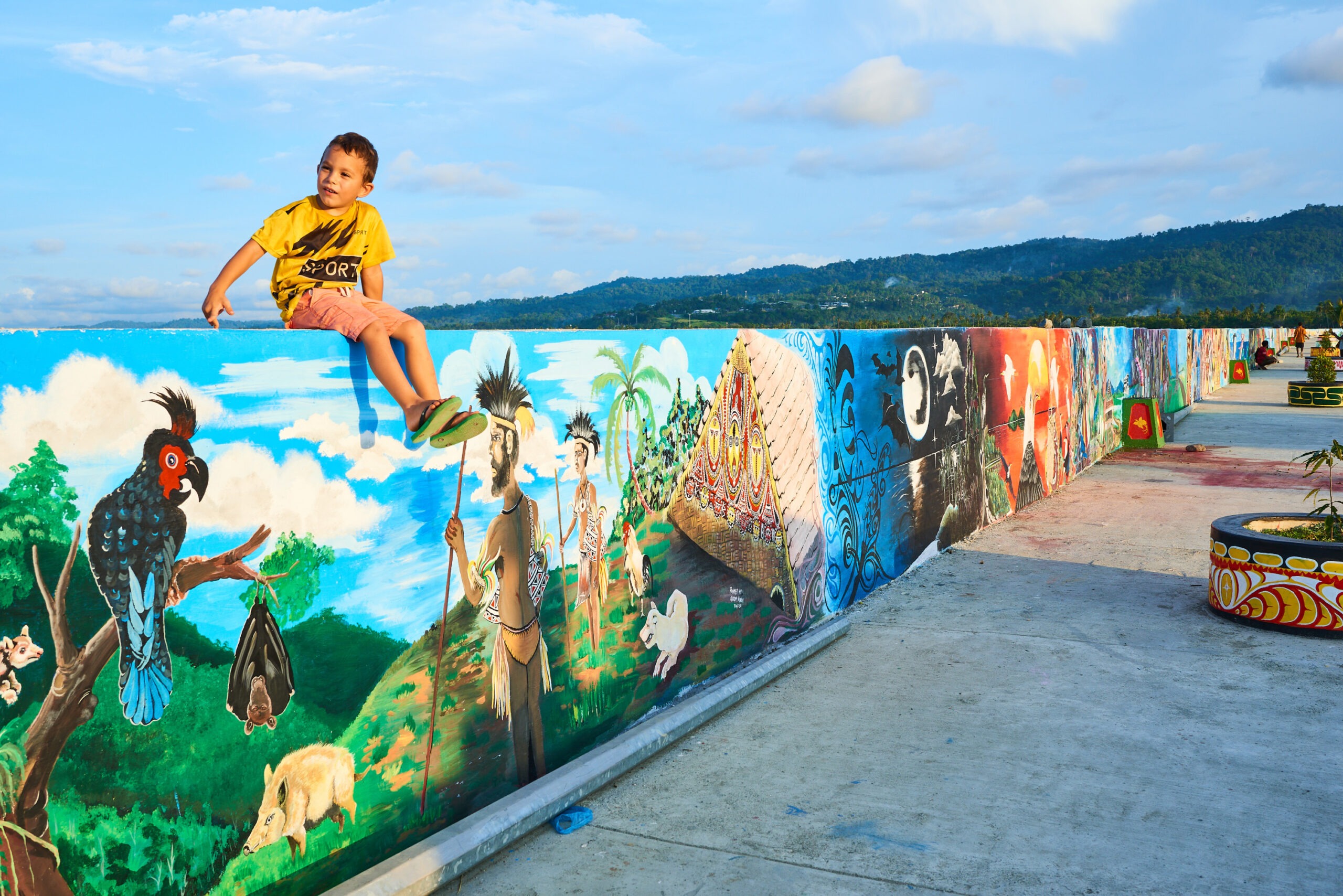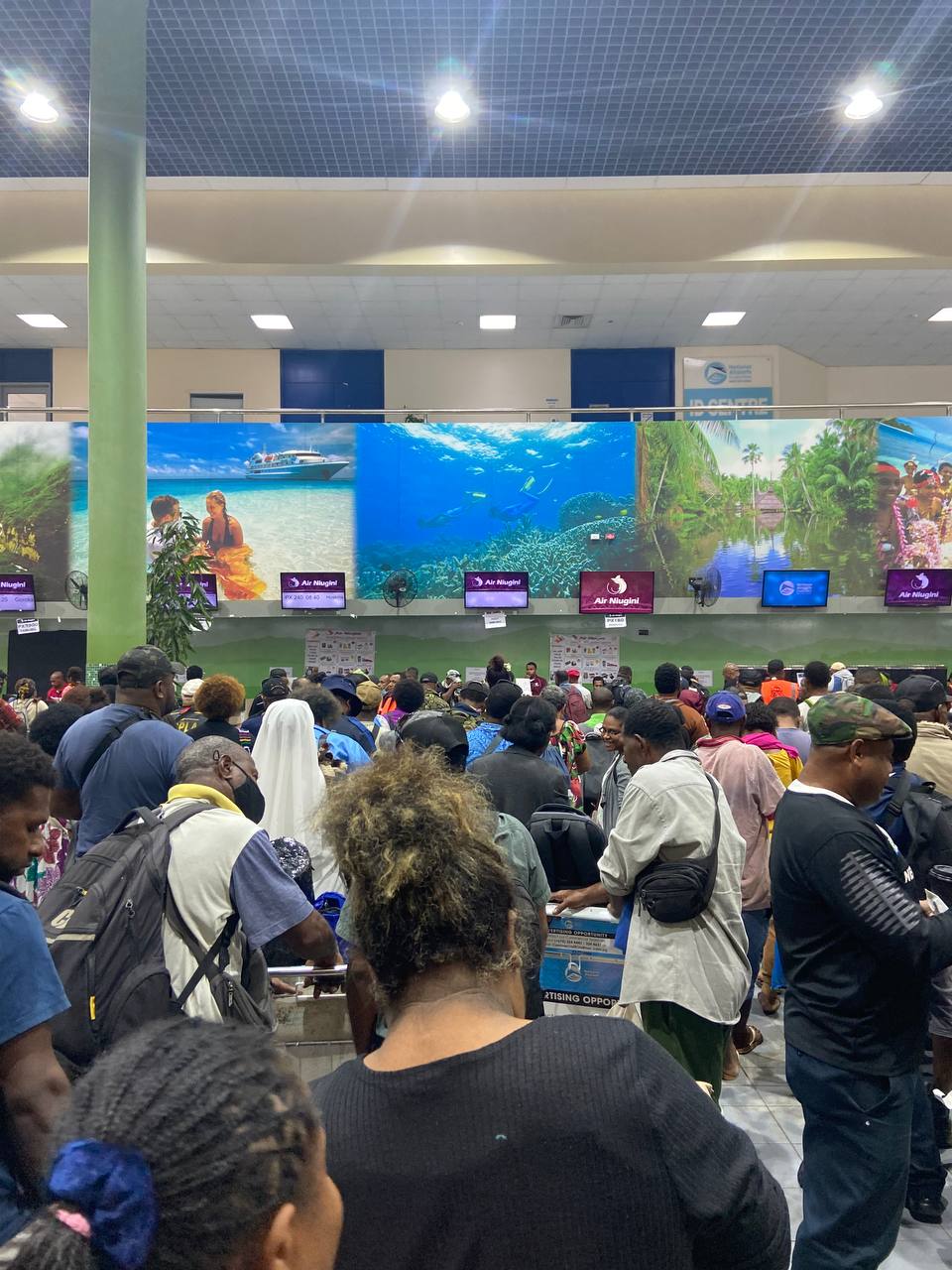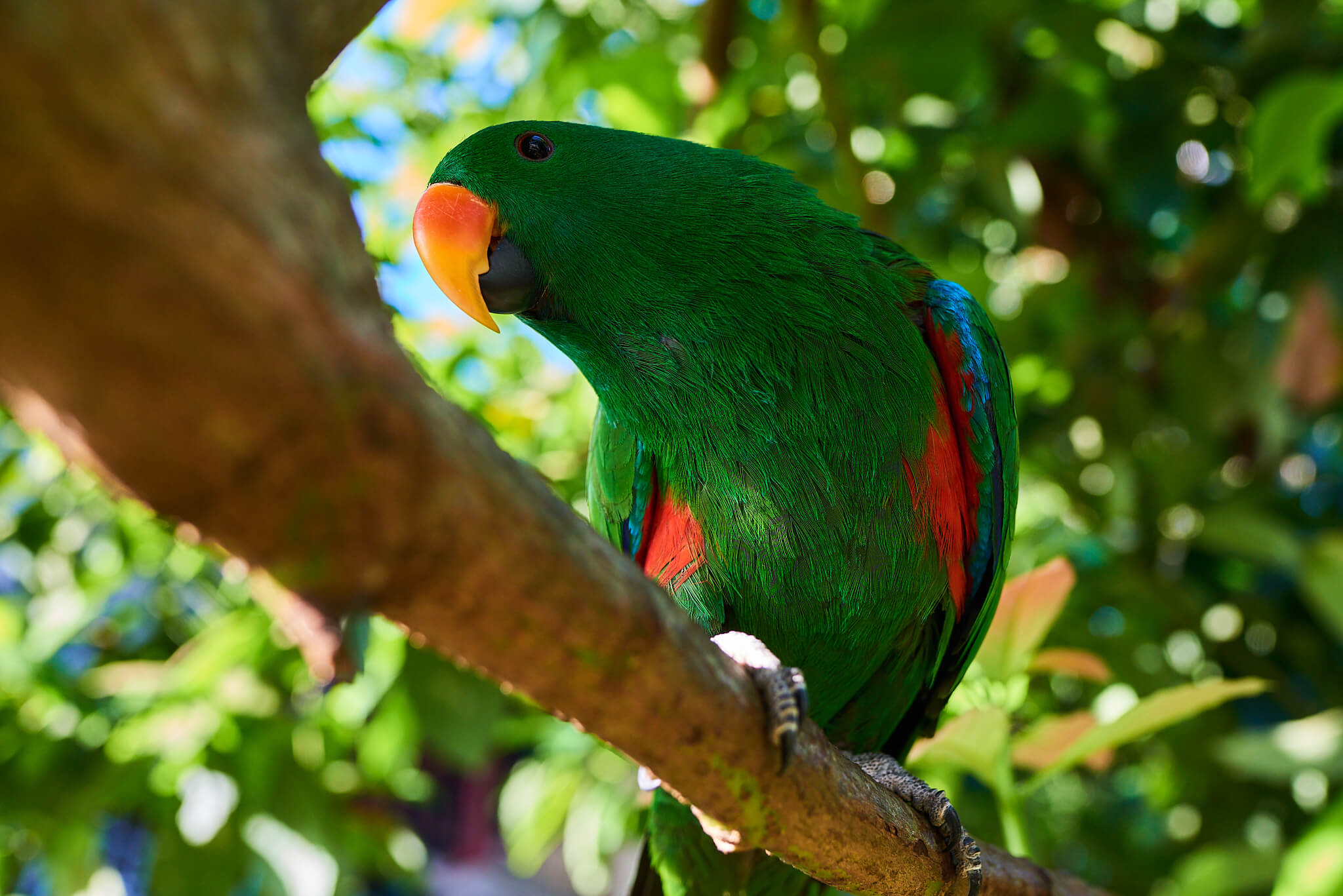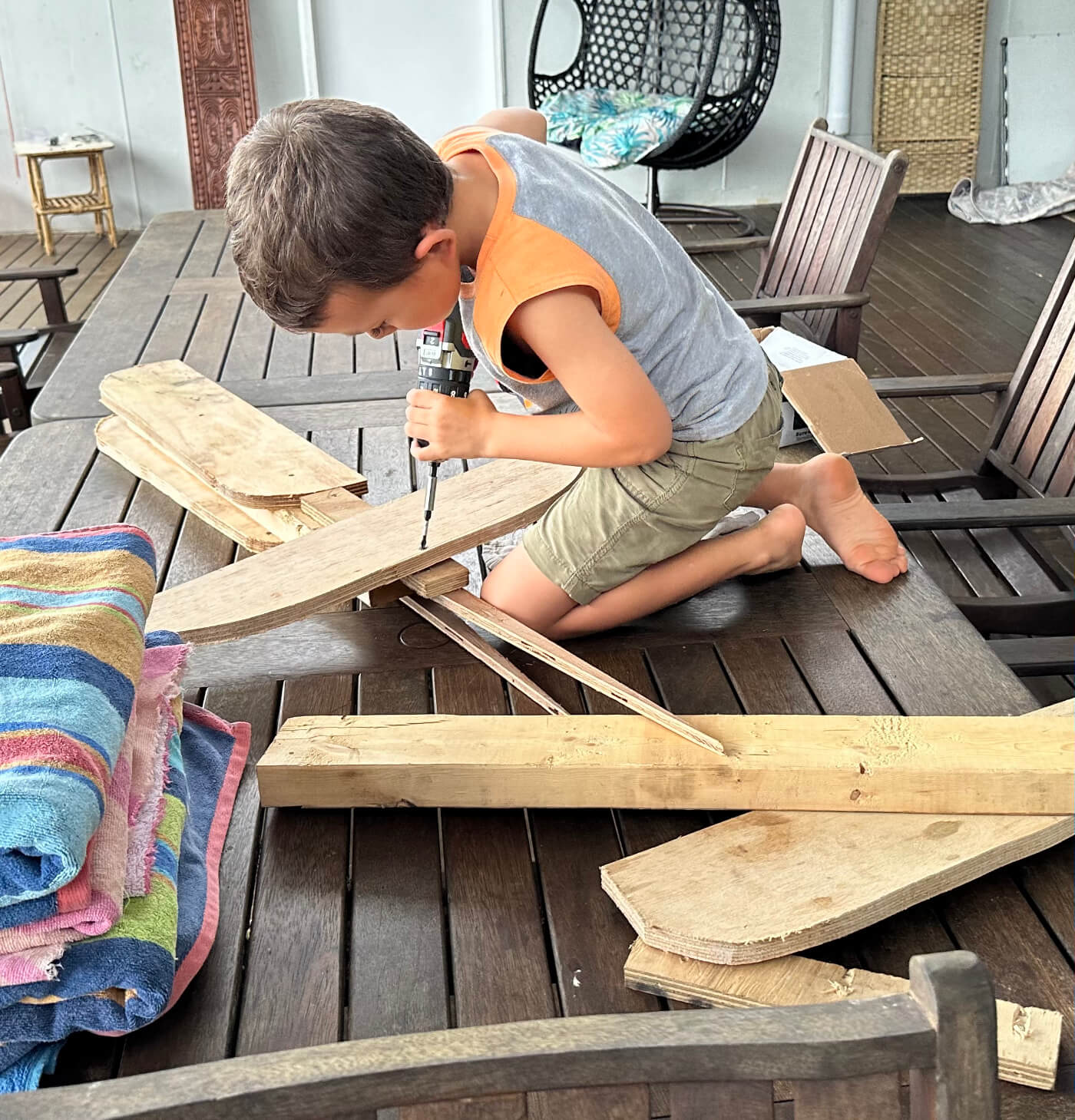There’s a temptation to assume that if missionaries aren’t writing newsletters, then they aren’t doing anything. I think in reality it’s the exact opposite. I can’t speak for every missionary who hasn’t been writing newsletters, but generally the busier we get, the less time we have to write stuff. Truth be told, newsletters are typically written when missionaries are supposed to be on vacation.
I’m not on vacation right now, but I feel like it’s been awhile since I’ve written anything. Well, it’s not just a feeling. It’s objectively true. For some reason, writing is therapeutic. I think it’s because my writing is actually just creative complaining and so I feel better after I’ve done a bit of it.
Pessimistic weather forecasting
Weather forecasting here in Papua New Guinea is inaccurate. The people who claim to know what the global climate will be like 100 years from now can’t even forecast a thunderstorm in Wewak. The pilots complain about not knowing which way the wind will be going or if thunderstorms are coming. Then again, it’s not uncommon for pilots to complain.
The only weather thing I worry about is keeping the toolboxes out of certain areas of the workshop when it rains because the roof leaks. But I’m just a mechanic, not a pilot.
Mechanics without pilot licenses are a bit like penguins. We look like we should be able to fly. We hang around hangars. We speak generally the same language as pilots. We can push buttons in the cockpit with enough confidence to make you think we know what we’re doing. We may even take the plane for a little spin around the ramp. But we can never actually leave the ground. We’re basically flightless birds. This is why we don’t care much about the weather. Pilots do.
That’s one thing I noticed in life: when people become pilots, they also become weathermen. They squint at weather radar apps on their phone and say things like, “Well, the weather is clearing out. Looks like it’ll be a good day for flying. Wish I was flying.” Or they look at the rolling black clouds and muster up the wisdom of an old, grizzled sailor and say things like, “Bad day to be flying. Yuppers. Better to be on the ground wishing you were flying than flying and wishing you were on the ground, heh, heh.”
Even though I’m not a pilot, I have developed a forecasting method that’s nearly as reliable as death and taxes. It doesn’t necessarily follow Einsteins Rules of Relativity (I’d have to know them in order to say for certain). Instead my method follows another rule of nature, one I’m more familiar with: Murphy’s Law. Murphy’s Law states: “If it can go wrong, it will.”
Now, the local roads feature some pretty substantial potholes. It’s either the people living beside the road who get annoyed at all the honking and congestion, or it’s the road department trying to stretch their budget so they can hire more of their relatives, but every so often someone fills the potholes with dirt or sand. And inevitably right after the dirt is tamped down, it’ll rain hard enough to wash the dirt right out of the pothole and into the ocean, thus restoring balance to nature until someone dares to fill the pothole again.
That’s my simple system: I can tell it’s going to rain because someone filled the potholes.
When one road closes, another one opens.
The potholes cause a chain of busses, pickups, and ten-seaters to lurch and grind slowly through town, honking, grating gears, smoking clutches, and miraculously squeezing four lanes of traffic into one.
A few months back it reached a boiling point and all the PMVs (Public Motor Vehicles) in town parked on the road and refused to move until someone agreed to fix it.
And wouldn’t you know it, they actually closed down the main road through town so they could raise it up several feet and build a seawall along it to keep the ocean out. During this time they opened up an alternate route that goes through the middle of the town square, then a swamp, then winds around an elementary school, and then finally dumps you into another congested part of town. The main road and the new alternate “road” are the only way for us to get off our peninsula and to the “mainland.”
Well, as you might expect, doubling or tripling the amount of vehicles on a little side road soon had it pounded into shambles, making it feel like a you’re driving across a Japanese runway after the Allies had dropped a few bombs on it. We found ourselves in the same pothole situation as before but on a different side of town, on an even smaller road.
The more things change, the more they stay the same.
A few months went by and they finished the new road. It was a beautiful flat stretch of oiled gravel with a seawall standing proudly beside it. Artists were invited to paint the seawall and they did a great job, turning the street into an explosive streak of color, like something you see when you hit your head really hard, but without the concussive side effects. They even put up street lights, attracting people like bugs to buzz around the seawall. Everything was just peachy except the road part – the part that I was really concerned about – remained closed for several months after it was finished.
It was unbearable sitting in your car as it tilted to one side, while two wheels magically clung like a mountain goat to a pile of pavement and the other two slowly sunk into a swamp. If you tensed your posterior and raised your eyebrows just enough, you could peer over the edge of the crater you’re stuck in to see if the bus in front of you has moved out of his crater yet. There was still diesel soot belching out of the crater like a volcano so you would decide to wait a little longer. Of course, if you waited too long, another bus would rush to fill the crater ahead of you. You would glance to your right, knowing that a few hundred yards to your right lays a brand new road that remains closed for reasons unknown to anybody.
Finally one day a courageous soul went and moved the barrels just enough to get a PMV through. It was like opening a faucet on the bottom of the Hoover Dam. Now we all decided it’s open and so it seems to be that way. The barrels are still sitting at each side of the road, not quite willing to admit they’re out of a job.
Ideally we’d have the hangar, Haus Sik, and our homes all on the same compound so we wouldn’t have to drive anywhere, but I’m told that’s not realistic.
I’m told most of my good ideas aren’t realistic.
That’s the annoying thing. My good ideas are either wildly unrealistic or actually just bad ideas disguised as good ones. The only way to tell is by leveraging my wild ambition against the problem until it moves enough for me to see there was a land mine sitting underneath it all along.
The older I get, the more I crave simple solutions instead of wild ambition. Kind of like that movie where Indiana Jones is confronted by an evil ninja who does gymnastics while whipping a sword around so fast you can hear the air scream. Instead of getting caught up in the drama, Indiana Jones rolls his eyes, pulls his pistol, and neutralizes the threat in one second. I’m not saying I want to shoot my problems with a gun (some days it does cross my mind) but instead of getting caught up in the all the drama a problem is creating, I want to be able to roll my eyes and neutralize the problem with a well placed simple solution. But that’s an unrealistic idea. So I guess I’ll have to muster up my ambition because so far, I haven’t seen many simple solutions around here.
In America we invent drama to keep us entertained. Here it happens naturally.
A land of contrast
The Haus Sik is located on a peninsula. One day I was done visiting patients and so I wandered out to sit under a tree on the beach while I waited for Nick to come pick me up. As I sat there I was struck with the contrast in front of me.
I was sitting on a tropical beach. The warm waves were lapping the sand and a breeze was playing with the palm fronds above my head. The birds squawked and I could see bits of the reef poking out of the water since it was low tide. I could almost convince myself that I had found paradise and that no one living in a place like this could be unhappy. But as soon as I turned my head I saw the ugly MDR ward in front of me. Peeling paint was on the walls, torn mosquito netting filled the gaps, and trash nestled in the corners. Multiple Drug Resistant tuberculosis is on the rise in Papua New Guinea and we have several patients who are quarantined in the MDR ward as we speak.
Kaselyn was one of our MDR patients who was doing well. We had flown her in several months ago because of complications from TB. She was in quarantine and so we all had visited her often and had grown to know her and her adorable daughter Nadine really well. She was a success story. Then one week before she was to be discharged Janice dropped in to see her but found she was feeling sick with some stomach bug that was going around. So instead of disturbing her, Janice dropped off some dried fish and sak sak and moved on to other patients. It was the last time any of us would go visit her. Kaselyn died suddenly later that week. This had all happened right there in the ward in front of me only a few days earlier.

I’m sitting in one of God’s most beautiful masterpieces and yet the stench of death seems stronger here.
I thought of the contrast again when I was sitting on my porch scratching scratching the bacterial skin infection on my face while staring at the most spectacular sunset I’ve ever seen.
It’s not uncommon to see thatched roof huts with solar panels on top of them charging phones that are connected to Facebook.
When we were in Port Moresby we stayed in a hotel where they offered us cold, mint scented towels as we got out of the taxi. I had to ask what they were for. Janice seemed a little embarrassed that she was married to someone so uncultured. The lobby inside was marble. They had a huge pool on the fifth floor. It cost as much as a Holiday Inn. Even as an American I was uncomfortable because I felt like I lacked the proper etiquette and the social nuances to fit in. Yet, during my stay I met a group of men who were standing at the elevator doors confused because they had never seen an elevator before.
I’ve never seen a culture so respectful towards the elderly and so excited about children. Everyone here loves kids. It’s one of the first things I noticed and one of the greatest things I enjoy about Papua New Guinea. And yet, retaliatory murders are part of the culture and a villages are just one heartbeat away from being overtaken in sudden violence.
In two generations, some tribes in the wilds of Papua New Guinea went from practicing cannibalism to posting videos of their cultural dances on Instagram.
When you think differently than I do, it’s easy to skip the nuances and say, “That’s because you’re stupid.” But while simple, writing people off as stupid isn’t a good solution. Janice has to remind me of that sometimes. Many times the solution isn’t simple. So pray that God would give us the wild ambition we need to build bridges across the canyons between our cultures.





Leave a Reply